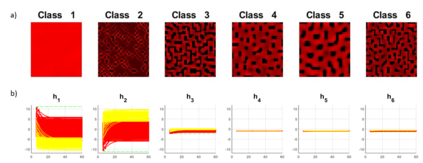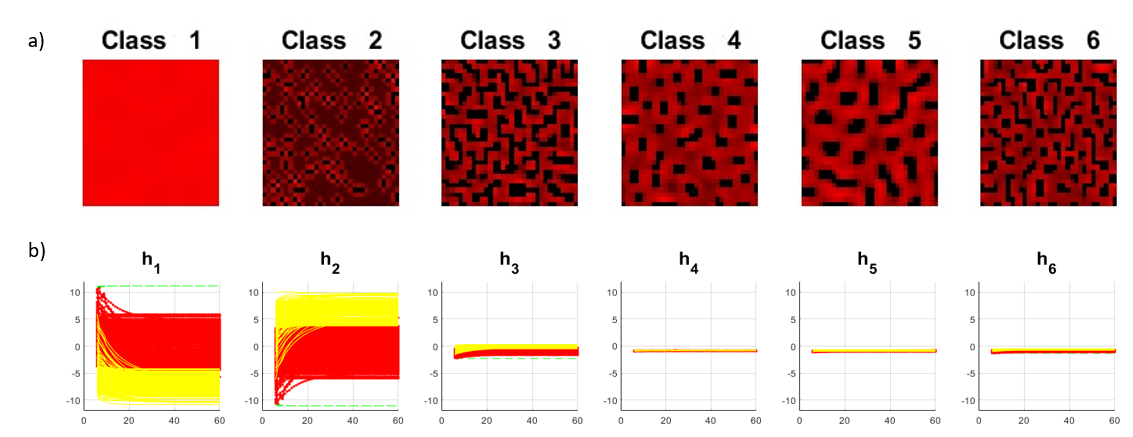Learning dynamical systems properties from data provides important insights that help us understand such systems and mitigate undesired outcomes. In this work, we propose a framework for learning spatio-temporal (ST) properties as formal logic specifications from data. We introduce SVM-STL, an extension of Signal Signal Temporal Logic (STL), capable of specifying spatial and temporal properties of a wide range of dynamical systems that exhibit time-varying spatial patterns. Our framework utilizes machine learning techniques to learn SVM-STL specifications from system executions given by sequences of spatial patterns. We present methods to deal with both labeled and unlabeled data. In addition, given system requirements in the form of SVM-STL specifications, we provide an approach for parameter synthesis to find parameters that maximize the satisfaction of such specifications. Our learning framework and parameter synthesis approach are showcased in an example of a reaction-diffusion system.
翻译:从数据中学习动态系统特性提供了重要的洞察力,有助于我们了解这些系统,并减轻不理想的结果。在这项工作中,我们提出了一个从数据中学习时空特性的框架,作为正式逻辑规格。我们引入了SVM-STL,这是信号信号时空逻辑(STL)的延伸,能够具体说明一系列显示时间变化空间模式的动态系统的空间和时间特性。我们的框架利用机器学习技术,从空间模式序列给定的系统执行过程中学习SVM-STL规格。我们提出了处理标签数据和无标签数据的方法。此外,考虑到SVM-STL规格形式的系统要求,我们提供了一种参数合成方法,以找到能够最大限度地满足这些规格的参数。我们的学习框架和参数合成方法在反应扩散系统的例子中展示。






